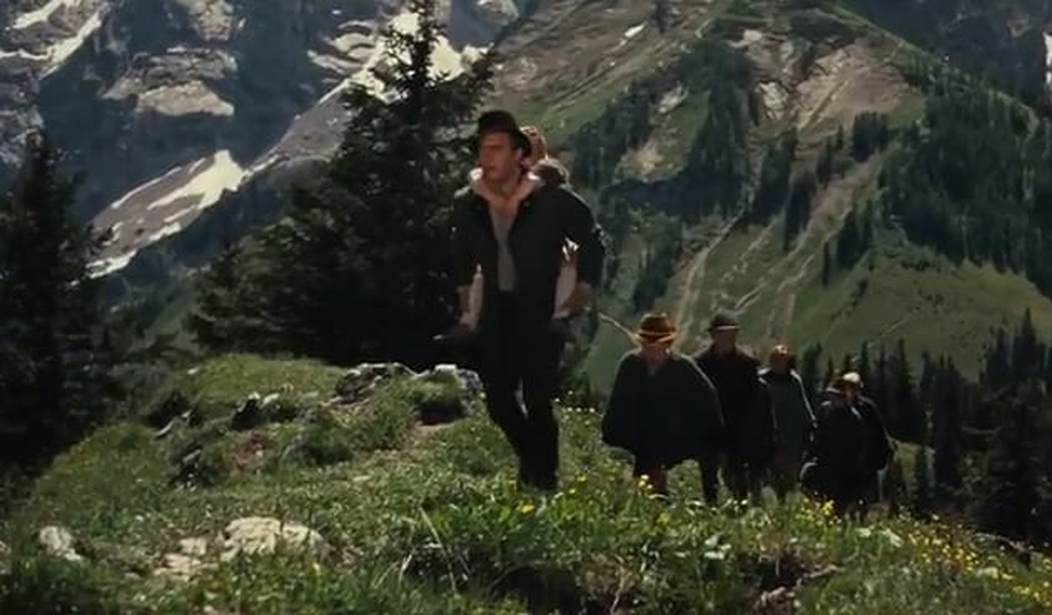Psalms are, quite literally, the very poetry of faith, and provide something of the sound of music to an Old Testament that in other places can be a dense, hard slog.
The poetry of psalms therefore tends to inspire references that serve as significant thematic templates in various literary works. Psalm 121, part of this week’s Revised Common Lectionary, inspired at least two such references in thoughtful popular culture in the early 1960s – one far better known than the other, but both still in publication, and treasured by audiences, today.
As the very climax of the play and movie The Sound of Music, the first line of this psalm, cited by the Mother Abbess, provides the path to salvation for the von Trapp family: “I will lift up mine eyes unto the hills, from whence cometh my help.” This advice is what solidified the family’s plans to escape from the Nazis by hiking across the mountains (although in real life the emigration from Austria was not so dramatic).
A passage a few verses later provided not just the climactic prayer, but the very title, of The Moon by Night – one of the young-adult novels by Madeleine L’Engle, whose intertwined Wrinkle in Time series and Austin family series meld questions of faith with science fiction in one of the most enduringly popular sets of such literature in the post-WWII era. Says the psalmist:
The sun shall not strike you by day, nor the moon by night.
The LORD will keep you from all evil; he will keep your life.
In the L’Engle novel, fourteen-year-old protagonist Vicky Austin prays this psalm while awaiting help with injured would-be young-boyfriend Zachary Gray after a mountainside avalanche. Interestingly, her prayer, too, had roots in escaping Nazis – she adopted it as her own after reading that the similarly aged Anne Frank prayed those verses while in her famous Amsterdam hideaway from the Third Reich. (In L’Engle’s book, unlike with Anne Frank, the rescue did indeed come.)
For our purposes, the point of all this is not to delve deeply into the themes either of The Sound of Music or The Moon by Night. The lesson instead is to recognize the enduring power of the psalms, written some 3,000 years ago, to capture our imaginations, to express our deepest spiritual longings, to comfort us when times are tough, and to inspire and enrich our faith. While in today’s secular world few of us grow up having memorized numerous psalm verses the way people did a century ago, almost as if by osmosis, these ancient poems still have the power to move us deeply in ways ordinary prose rarely does.
Learned scholars can explain all about the format of psalms, their call-and-response rhythms, why and how they repeat phrases and themes, and the role they actually played in the lives of the Hebrew people who wrote them. Yet it takes no scholarship to appreciate the psalms’ everlasting power to touch us, to prick our sensibilities and give us a glimpse of the holy.
Some of it is, of course, just skillful word use. But it’s not just that; Shakespeare and Donne and Blake and Frost all gave us poetry that also will surely inspire men as long as the human race survives.
With the psalms, it is the combination of lovely imagery and vivid word use with the sense of the numinous – the presence of God – that leads so many of us to turn to them when in trouble, and inspires so many writers to turn to them for themes and aspirations.
In truth, it is not merely to the hills to which we lift our eyes, but to the hills as way stations to the even higher realm of the holy – and it is the psalms that often guide those upward thoughts.
The ultimate goal, as the final line of Psalm 121 so faithfully puts it, is so that “the Lord will keep your going out and your coming in from this time on and forevermore.”
Quin Hillyer is a veteran conservative columnist. His faith-themed satirical novel, Mad Jones: Heretic, is due for publication in June by Liberty Island Media.









Join the conversation as a VIP Member